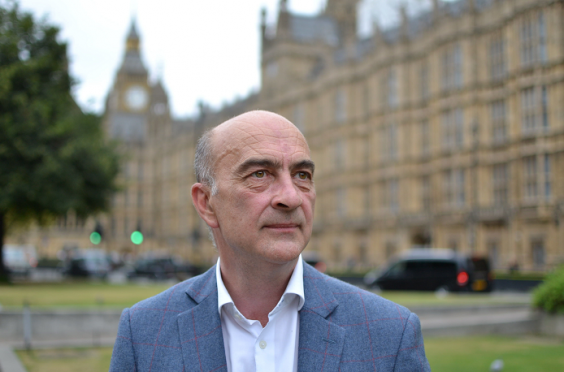The next time my Monday Muse meanders onto these pages, we will be in the final fortnight of Brexit.
Actually, and more precisely, we will be nearing the end of the beginning. Because, dear reader, when the clock strikes 11 on that late March evening less than 50 days from now, the real job begins: forging our new relationship with the EU and the wider world.
Often lost amid the fog of debate and bickering over the last two years has been the fact that we are only approaching half time: little more than our divorce terms will have been agreed. What happens next – the future trading arrangements – are still to be hammered out. There is a framework, the political declaration, but much meat still has to be put on these bare bones.
The sharp-eyed among you will notice that I have made what some might think of as bold assumptions in reaching this point. That there will be agreement by our MPs on what Brexit means, that we will leave on B-Day as planned and that there will not be an extension of Article 50 to take us into extra time.
They say that you have to be brave or foolish to make political predictions. So let me be brave. Often a foolish thing to do. But here goes anyway.
The prime minister is currently engaged in the latest round of shuttle diplomacy between London, Brussels and Dublin. She and her ministers are locked in talks with parliamentarians from across the divides of the House of Commons. Shove is coming to push. The clock is ticking louder than ever. A few, for too long locked in their ideological silos of perfection, are waking up and smelling the coffee – and worrying that it might get stuck in a customs queue at Calais. Forces from the soft and hard sides of Brexit are even trying to broker a compromise, the so-called Malthouse proposals.
Rumours abound of Labour MPs in Leave-voting constituencies being ready to back Brexit. And some even see the Labour leadership flirting with abstention so they can neither be blamed for backing the May Deal nor blocking Brexit. Jeremy Corbyn’s late entry into the fray is based on him backing an exit – even if his customs union offer is muddled. Much of what he asks for is already in the deal.
And Labour desperately needs to move on. Talk of a breakaway party persists. Europe might be the issue which has split the Tories, but it has become a millstone round the neck of Labour too.
So, prediction one. We will leave. With a deal. No People’s Vote. The only case where it could be justified is if Parliament cannot decide “which Brexit”. It should never be used for “whether Brexit”.
Prediction 2. Brexit will be on March 29th – or within 2 months of that date if we are close to agreement but just need to dot and cross some letters. But no later than May to avoid the need for us to elect MEPs in May’s Euro Elections.
So how could this happen? The EU will not reopen the withdrawal agreement, but within the amendable political declaration which sits alongside it, a form of words will be found. They will not satisfy the Backstop Boys and Girls who are purists seeking legal certainty (about something which probably won’t happen anyway) but they will massage the concerns of others just enough to keep them onside. Those who will still vote down the deal on the Tory benches will be covered by converts from the Labour side.#
Many will fear that, if this final arrangement is rejected, then either no deal or no Brexit will ensue and the best chance of getting most of what they want will have been lost forever. In other words, pragmatism and realism will, at long last, prevail. The result of the referendum will have been respected. And, whisper it, Brexit might even end up meaning Brexit.
And thus, I hope, the nation can breath a massive sigh of relief. Few will be 100% happy – indeed many very unhappy – but most will be satisfied that democracy has been served and that it is over.
But, as I wrote earlier, all of this does not end the affair. We will be in an implementation period until December 2020. Our Schrodinger’s Brexit – both in and out.
During this time, the hard graft of how we live together on this continent begins. But on this, there are enormous mutual benefits in play. The blinding need for the EU and UK to strike a comprehensive free trade deal on goods. And during this time there will calmer heads and cooler language. Brexit will disappear as the only topic worthy of media coverage and the body politic and hoi polloi can get on with the urgent needs of our economy and our public services. Life can regain a modicum of normality.
And that would be a prize in itself.
